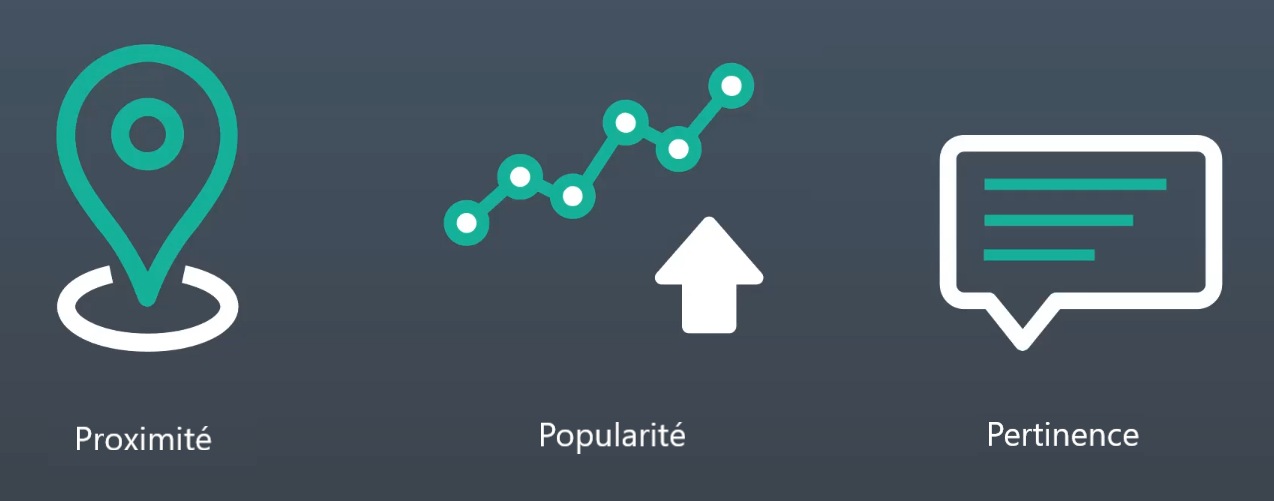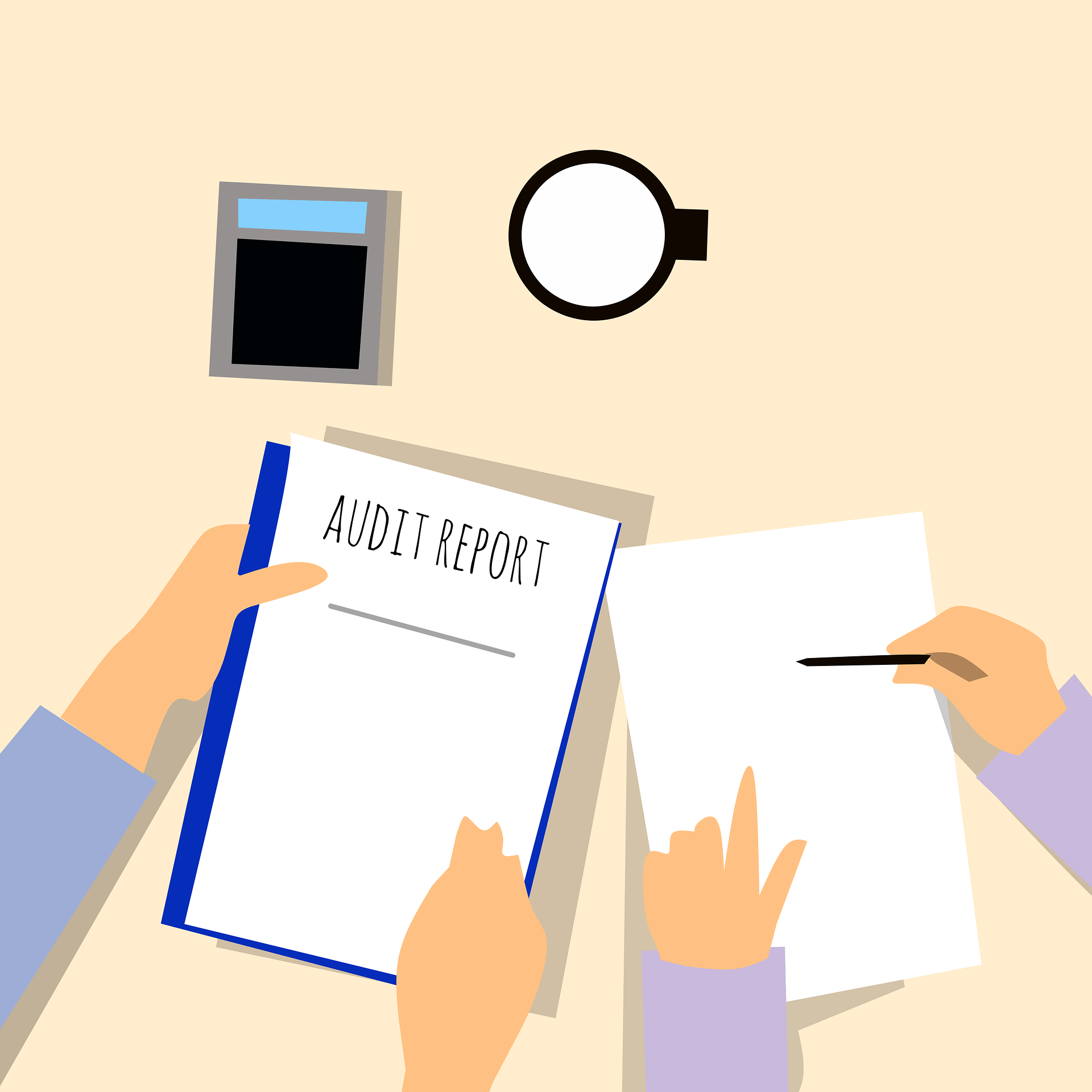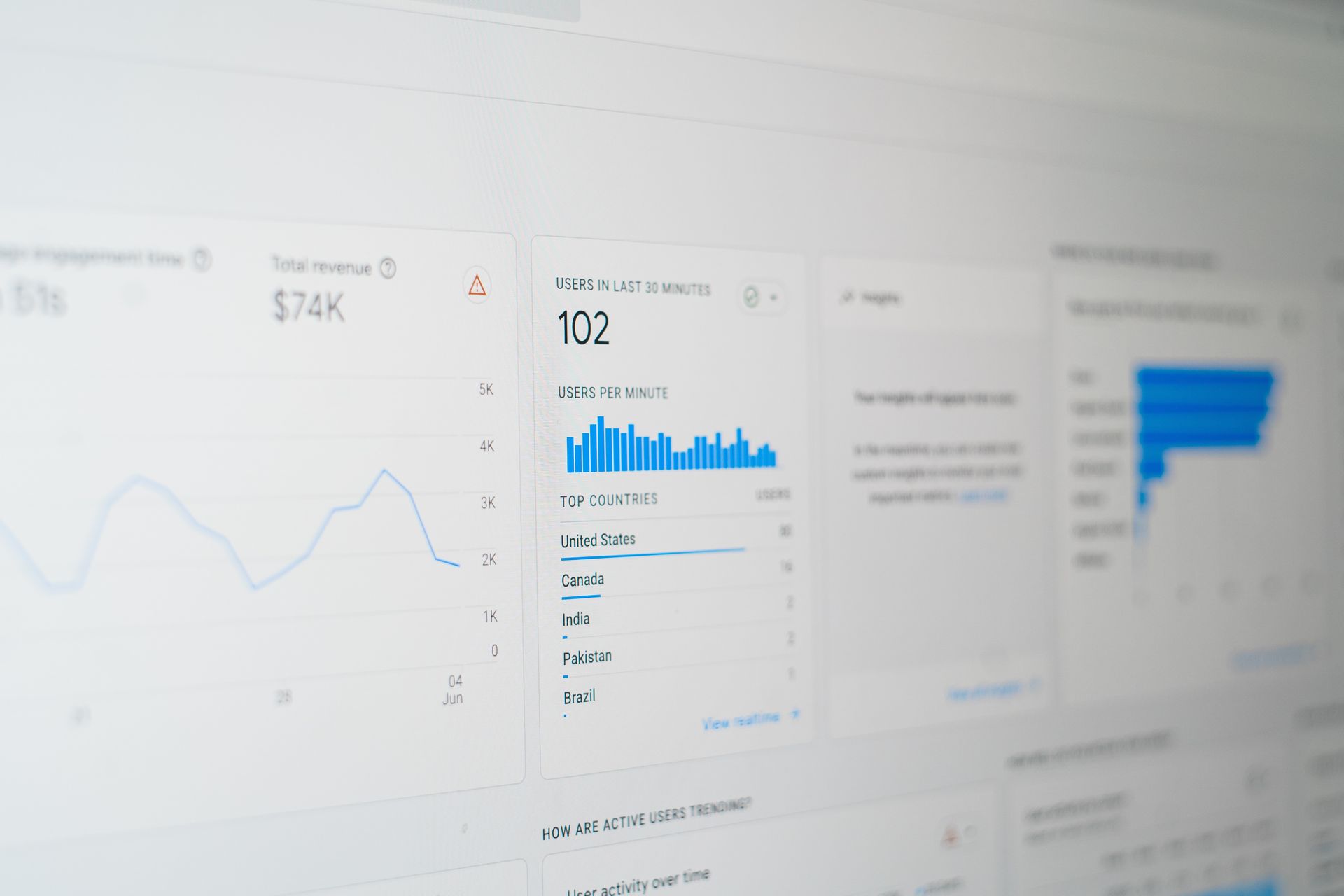Local SEO Audit and Google My Business Listing
Analyze your local content, web pages and Google Business Profile listings
Local SEO audit: definition
A
local SEO audit is a report that aims to understand theSERP appearance (Search Engine Results Page)
Google local (or Bing). It focuses on how a search engine presents information when a user performs a
local query from a computer or phone.
This analysis and understanding of the search engine display is crucial. It helps us to
understand search intent
users and to determine whether your
data
(found in your Google My Business (GMB) listing and on your website) are
relevant
.
Why do a local SEO audit?
Make a local seo audit is essential to optimizing your business’s visibility in geolocalized search results. It allows you to understand how your website and business listing rank in relation to your local competitors.
Local seo audit allows you to set up tailored SEO strategies to improve your ranking in different search engines. It also gives you the opportunity to identify opportunities for developing qualified and targeted traffic.
By evaluating the quality of your Google My Business profile, analyzing the optimization of your local keywords, the presence of relevant backlinks or the consistency of your contact information on the various online directories, you can identify areas for improvement and increase your local visibility.
A local seo analysistherefore allows you to set up anatural referencing strategyeffective for your local business. The goal is to attract more local customers and improve your business results.
Understanding Search Engines and Local Ranking
Google local rankings are determined by factors of
relevance, of distance and popularity. These criteria help the search engine find the most appropriate results based on each local query.
Although geographic proximity is a factor to consider, it is not the only determining factor in a local ranking.
In fact, the algorithms from Google may prioritize a more distant establishment if it is considered to better match the user's needs. As a result, this establishment will be assigned a higher position in nearby search results, source Method used to determine a local ranking Google Business listing.
The Vicinity algorithm in local SEO
Optimizing your Google Business profile remains essential to be visible locally. Good referencing is not a matter of simply completing your Google Business Profile account as much as possible. That's no longer enough!
You should also be aware of local search engine algorithms and updates.
For example, updating the Vicinity algorithm in 2021 redefined the display of Google's local pack.
The one prioritizing 3 criteria:
- The proximity of the establishment to the user.
- The relevance of the information, in response to the query.
- The authority of the company, based on customer reviews left on GBP and the traffic recorded on the website.

Key Steps of a Local SEO Audit
Local SEO analysis involves listing audit and website review. Local rankings should be checked on Google Search, Google Maps, Bing Places, and Apple maps.
A final part is reserved for popularity (customer reviews, registration in local directories, local citations, netlinking and social networks).
Carry out a Google My Business positioning audit
A Google Business Profile audit is a process that helps assess the condition and performance of your establishment sheet. It is important to regularly audit your listing to ensure that it is optimized for local SEO. It should provide potential customers with all the information they need.
7 Steps to Conduct a Google My Business Listing Audit
Log in to your Google Business listing.
- Check your NAP. Make sure all basic information is correct and up to date, including your name, address, phone number and business hours.
- Control your main category and secondary categories.
- Check your customer reviews. Customer reviews are an important local ranking factor. Make sure you respond to all reviews, positive or negative.
- Upload photos and videos. Photos and videos of your business help to grab users’ attention and give them a better idea of what you offer. Make sure your photos and videos are of good quality and reflect your business’s industry.
- Check your keyword optimization. Make sure your Google My Business listing is optimized for keywords that meet your target’s search intent. You can use a keyword analysis tool to help you identify the most relevant keywords for your business.
- Check additional information. Add additional information to your Google My Business listing, such as services that you propose, your attributes, social networks, promotions and events that you organize through Google Posts.
- Finally, make sure you have completed your profile 100%: activation of messaging, FAQ, online appointment booking links, link to your website, catchment area, etc.
Google My Business SEO, a specific audit
01
Data sheet analysis
Google Business
02
Audit de Géo-positionnement local
03
Local Link Audit and Local Citations
04
Local Competition Analysis
Check -List fiche Google Business Profile
Auditing your Google Business Profile allows you to know your local visibility. It takes place in several parts. It mainly focuses on:
- Title of your file.
- The choice of your main category and secondary.
- The description of your profile.
- Your opening hours.
- Photos and videos
- Services, attributes and products
- Customer reviews
- Directory listings (local citations).
- Local links and social networks.
- Your local reputation.
Geopositioning analysis


Google Business Profile Audit Tools
There are a number of Google Business Profile audit tools that can help you assess the health and performance of your Google My Business listing. These tools can help you identify areas where you can improve your Google My Business listing.
Here are some popular Google Business Profile audit tools:
- Google My Business Insight: Google My Business Insight provides information about the performance of your Google My Business listing, such as views, clicks, and conversion rate.
- BrightLocal: BrightLocal is a comprehensive audit tool that allows you to assess the health of your Google My Business listing, website, and online presence.
- Moz Local: Moz Local is an audit tool that allows you to assess the health of your Google My Business listing and website.
- LocalFalcon, GMB Spy, GMBEverywhere.
- Seranking.
Tips to improve your Google My Business profile
Here are some tips to improve your Google My Business listing:
- Your Google listing must be complete and up to date. Make sure all the basic information on your Google My Business listing is correct.
- Get positive reviews. Customer reviews are an important factor in local ranking. Encourage your customers to leave reviews on your business listing by setting up a QR code for example and an email campaign.
- Add photos and videos regularly. Photos and videos of your business can help attract users' attention and give them a positive image of your services and products.
- Make sure your Google My Business listing is optimized for local and industry-specific keywords.
- Be active on social media. They are a great way to promote your business and increase your online visibility. Also consider add your social networks to your profile.
Local SEO Audit: 3 Major Pillars to Analyze on Your Website
Technical audit
The technical audit consists of checking:
- Indexing problems.
- HTTP code errors.
- The loading time of your pages.
- The referencing of your images.
- If your site is responsive.
Content Audit
The content audit consists of checking:
- The positioning of your local keywords.
- The richness of your content.
- Your hn tags.
- The relevance of your texts in relation to the local search intent of Internet users.
Popularity Audit
The popularity audit consists of checking:
- Your notoriety on the Web.
- Your use of social networks.
- Your external and incoming links (netlinking).
- Your local directories.
- Your local quotes.
On-Page SEO Audit in Local SEO
Performing an On-page SEO audit in local SEO is essential to optimize your online presence and improve your ranking in local search results.
1. Keyword research and search results optimization
A local keyword study is a process that helps identify the keywords that are most relevant to your business and industry. These keywords can be used to optimize your Google My Business listing, website, and other local marketing efforts.
Steps to Conduct a Local Keyword Study
- Set your goals. Before you start your local keyword research, you need to define your goals precisely. Do you want to increase traffic to your website? Attract more customers to your store? Generate leads and prospects?
- Identify your competitors. This will help you identify what keywords they are focusing on and which keywords are the most competitive.
- Perform keyword research. There are a number of keyword research tools that you can use to identify the most relevant keywords for your business. These tools will provide you with information on the search volume, competition, and difficulty of your chosen keywords.
- Evaluate the feasibility of your keywords. Once you have identified a list of keywords, you need to evaluate them based on your goals and budget. You should also consider the competition and relevance of the chosen keywords.
- Based on your assessment, you need to choose the keywords you want to focus on. You need to make sure that these
keywords meet the search intent of Internet users, that they correspond to the services of your company and your sector of activity.
Local Keyword Research Tools
- here are a number of local keyword research tools that can help you conduct your research. These tools will provide you with information on search volume, competition, and keyword relevance.
- Here are some popular local keyword research tools:
- Google Keyword Planner: free tool that allows you to obtain information on search volume, competition and keyword relevance.
- SEMrush: Paid tool that provides you with detailed information about keywords, including search volume, competition, and relevance.
- Moz: Paid tool that provides you with keyword insights including search volume, competition, and relevance.
- Seranking: paid tool. Allows you to know local rankings by geopositioning.
- Google SERP Analysis: how does it present a result page? What is the search intent of your local customers?
Tips for Conducting Local Keyword Research
Here are some tips for conducting effective local keyword research:
- Think about your target audience. What keywords do they use to find businesses like yours?
- Use long tail keywords. These keywords are more specific and less competitive than generic keywords.
- Use local and geolocated keywords. When targeting a local audience, use keywords that include the name of your city, neighborhood, or region.
- Be patient. It takes time to see results from your local keyword research.
2. Audit of the site structure, tags and contents
Make sure your website is well structured and user-friendly. This includes navigation, page hierarchy, internal links, etc.
Make sure your site is optimized for mobile devices, as many local users search on their smartphones.
Meta Tag Optimization
- Review the Meta tags (titles and descriptions) of each page on your site. They should be unique, informative, and contain relevant local keywords.
- Check that your hn tags (h1, h2 and h3) include the correct keywords (main keyword, LSI and related searches).
Quality content
- Make sure your website content is high quality, informative, and useful to users. It should answer the questions and needs of your local customers.
- Integrate local keywords naturally into the content of your pages.
Google My Business (GMB) integration on website
- If you have a Google My Business listing, make sure it is set up correctly and that the information (name, address, phone number, hours of operation, category, etc.) is consistent with that on your website.
- Also consider inserting a Google Maps map on your local page and linking it to your business profile.
Reviews, testimonials and team
- Encourage customer reviews and testimonials on your website. They help build trust with local users.
- Promote your local team with photos and storytelling.
3. Audit of images, speed and internal meshing
Image optimization
- Make sure your website images are optimized for file size and alt tags.
- Images may also contain geolocated information.
Site loading speed
- Make sure your site loads quickly.
- Check core web vitals (LCP, FID, CLS and INP).
- Also check that your pages are responsive.
Checking for broken links and orphan pages
- Check for broken links on your website and fix them.
- Also check if you have orphan pages and keyword cannibalization.
Monitoring and analysis
- Use web analytics tools to monitor your site traffic, conversion rates, and other relevant metrics (see image below).
Once you have performed this On-page SEO audit in local SEO, you can put in place corrective actions to improve the performance of your website and strengthen your ranking in local search results.
THE
Local SEO is an ongoing process
, it is therefore important to
monitor regularly and adjust your strategy accordingly
.
Once you have performed this On-page SEO audit in local SEO, you can put in place corrective actions to improve the performance of your website and strengthen your ranking in local search results.
THE
Local SEO is an ongoing process
, it is therefore important to
monitor regularly and adjust your strategy accordingly
.

Suivi de positionnement et classements locaux

Example of On-page SEO audit with SERanking

Local Popularity Audit: Local Reviews, Citations, and Backlinks
SEO goes beyond the website itself. Remember that key factors in local SEO are also based on popularity and awareness.
Google Reviews and Reviews on Other Platforms
Google reviews boost popularity on the Internet in several ways:
- They improve the visibility of the website or company on search engines.
- They build trust among Internet users.
- They encourage users to share information about products or services they have purchased.
Also know that being referenced on Trip Advisor, Yellow Pages or Facebook references you on DuckDuckGo, Apple Plans and Bing Places.
Local backlinks
The more “known” you are, the higher search engines will rank you in the results. To improve your local reputation, make sure other websites mention your site and talk about it. This is called local backlinks or external links. Increasing the number of external links will speed up your SEO.
Local quotes
In local SEO, “local citations” refer to the online mention of your business in various sources, such as directories, local websites, social media, and other online platforms.
Local citations typically include key information about your business, including name, address, phone number, website, and other details like hours of operation, business category, your photos, and reviews.
Local citations play a crucial role in local SEO for several reasons:
- Validation of local presence: Local citations help validate that your business is well-established in a given region. The more your business is mentioned on reliable platforms, the more legitimate it is considered by search engines.
- Consistency of information: It is essential that your business information is consistent, identical and accurate across all online platforms. Search engines place great importance on data consistency. Local citations help maintain this consistency.
- Ranking factor: Search engines, especially Google, use local citations as one of the ranking factors in local SEO. Businesses that have accurate and consistent citations tend to rank higher in local search results.
- Online visibility: Local citations expand your business’s visibility online, especially on directories, local websites, and social platforms. This means your business is more likely to be found by local users.
- Reviews and ratings: Many local citations include reviews and ratings. Positive reviews build credibility for your business and can influence customer purchasing behavior.
- Global natural referencing: Finally, local citations are not only beneficial for local SEO, but they also help boost your overall SEO. They strengthen your online presence and build trust with search engines.
It’s important to ensure your local citations are accurate, complete, and consistent across all platforms. You can monitor your citations using online reputation management tools (such as brightlocal and SERanking), and make sure your business is listed on directories that are relevant to your industry and region.
Example of GMB listing analysis: local citations with the SERanking tool

Exemple of local SEO audits
Remember that the audit of your local presence depends on your Google Business Profile (formerly Google My Business) and your website. Here are two examples of local SEO analyses.
- Analyzing your Google My Business listing
(Example of a GMB listing audit
in attached PDF).
- Analysis of your website and local pages. (Example of an on-page SEO audit in attached pdf).
If the
analysis of your website and your Google Business Profile listing
meet all of these criteria, this means that you have a good chance of being well referenced by search engines locally.
On the other hand, if there are any points that you have questions about, do not hesitate to contact me to obtain better visibility on the Internet..
Objectives following the local SEO audit
01
Improved presence on Google Maps
02
Increase traffic to your website
03
Highest ranking in Local Pack
04
Improving local visibility
The analysis of your Google local positioning and the use of precise SEO tools allow you to define a strategy of SEO local effective.
Here are some specific goals you can consider following a local SEO audit:
- Rank your business on the first page of local search results for relevant keywords.
- Increase traffic to your website by 20%.
- Generate at least 10 new leads per month.
Request a local SEO audit
Do you have a question? Need a local SEO audit? Send your message!











